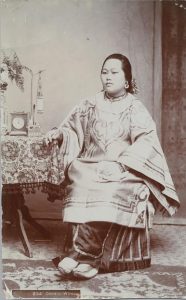Thanks all for some terrific presentations, and for your attention on Thursday as we galloped through a lot of material.
Here are the readings for next week:
Raimundo Nina Rodrigues, “The Fetishist Animism of the Bahian Blacks” (excerpt)
José Vasoncelos, The Cosmic Race, 1925 (excerpt)
Erika Lee, “The Yellow Peril” and Asian Exclusion in the Americas
Pacific Historical Review, Vol. 76 no. 4, (November 2007)
Here are some questions to guide your reading and blog posts:
What kinds of assumptions about race inform Rodrigues and Vasconcelos? Are they thinking about science, religion, history in terms of defining race?
Do they have similar goals/visions of the future?
Put the Erika Lee article in this context: how can we characterize the late 19th and early 20th centuries?
What happened to the declarations of equality in the French and Haitian revolutions? Are they gone or merely “reinterpreted”?
Even if you don’t do a blog post (here), jot down some notes for discussion. Also, you might want to pick out a few particularly interesting or problematic passages to focus our discussion.
The film tickets are all spoken for; I’m trying to get some more. But I encourage everyone to attend nevertheless; it’s only $10, about the cost of 2 lattes…
https://www.viff.org/Online/black-history-month-2017


 Follow
Follow